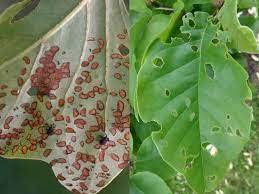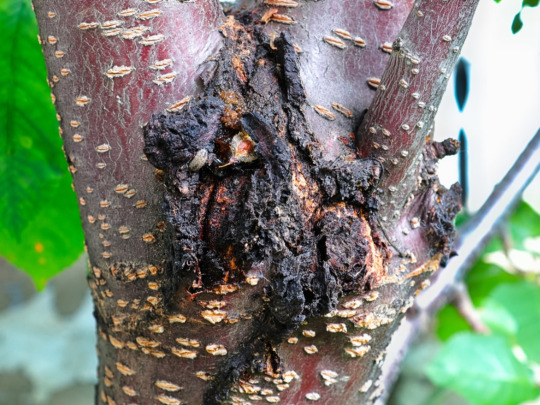#mongoliabugstreatment
Explore tagged Tumblr posts
Text
The top 5 most common bugs on magnolia trees and how to get rid of them

If you're a homeowner, then you know that keeping your lawn and garden in good shape can be a lot of work. Between watering, mowing, and trimming, it can feel like there's never enough time in the day. But don't forget about your trees! Magnolia trees are beautiful but they can also be susceptible to certain bugs and diseases. Here are the top 5 most common bugs on magnolia trees and how to get rid of them.
1. What is canker disease and what are the symptoms?
Canker disease is a plant disease that is caused by various fungi or bacteria. The most common symptom of canker disease is the presence of small, sunken lesions on the leaves, stems, or branches of a plant. These lesions are often surrounded by yellowish or brownish discoloration. Other symptoms include premature leaf drop, dieback of shoots and branches, and cankers on the trunk. Canker diseases can weaken and kill plants over time if left untreated.
There are several ways to prevent canker diseases from occurring in the first place. One way is to choose disease-resistant varieties of plants when possible.
2. How is canker disease treated, and what are the side effects of treatment?

Canker disease is a plant disease that affects many different types of trees, including magnolia trees. The disease is caused by a number of different fungi, bacteria, and viruses, and can cause significant damage to the tree if left untreated. Treatment for canker disease generally involves using a fungicide or bactericide to kill the offending organism.
However, treatment can also be difficult and sometimes unsuccessful. Additionally, some treatments can have negative side effects, such as damaging the tree's leaves or causing the tree to produce fewer flowers. As such, it is important to consult with a qualified arborist or tree care specialist before attempting to treat canker disease.
3. What causes canker disease, and how can you prevent it from spreading in your garden or orchard?
Canker disease is caused by a variety of fungi, bacteria, and insects. The most common cause of canker disease is the fungus Botryosphaeria dothidea. This fungus infects magnolia trees through wounds in the bark. Once the fungus has entered the tree, it begins to produce spores that spread the infection to other parts of the tree.
Bacteria can also cause canker disease. The most common bacterium that causes canker disease is Pseudomonas syringe PV. syringe. This bacterium infects magnolia trees through wounds in the bark. Once the bacterium has entered the tree, it begins to produce toxins that kill cells and cause cankers to form.
Insects can also cause canker disease. The most common insect that causes canker disease is the magnolia scale (Neolecanium magnoliae). This insect feeds on the sap of magnolia trees. As it feeds, the insect secretes a sticky substance that helps the fungus Botryosphaeria dothidea to infect the tree.
There are several things that you can do to prevent canker disease from spreading in your garden or orchard. First, make sure to prune dead or dying branches from your magnolia trees.
4. Canker disease is a serious infection - if you think you may have it, please consult a medical professional immediately.
If you think you may have canker disease, it is important to consult a medical professional immediately. This serious infection can cause bugs to form on magnolia trees, and can ultimately lead to the death of the tree. Early detection and treatment is crucial in preventing the spread of this disease.
Conclusion paragraph:
If you think you may have canker disease, please consult a medical professional immediately. Canker disease is a serious infection and can cause extensive damage to your trees or plants if left untreated. The good news is that canker disease is treatable, and with early diagnosis and treatment, the prognosis for recovery is excellent. Contact us today for more information about how we can help you diagnose and treat this potentially devastating infection.
0 notes